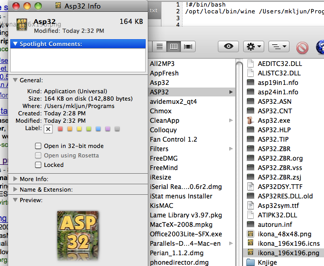There has been an interesting discussion a month ago about sharing personal information in a relationship. The question posted was:
“Being in a relationship necessarily means that you’re going to share some of your digital life with your partner. How much is too much? Do you prefer no boundaries at all, or do you keep your partner at arm’s length? …. Do you prefer to keep your lives separate and share information on a case-by-cases basis? Or do you let your love interest into every nook and cranny of your digital life?“
Most of the replies tend to be on the share-all information spectrum. Although this approach needs a complete trust and respect for each other’s privacy. For example while one might have a password of their partner’s Facebook account it does not mean that they should read it without permission (except when the account is shared which some people do).
“Wife and I share everything, but maybe that’s because we respect each other’s privacy and space too. She’ll keep her Facebook signed in, but that’s because she knows I won’t use it/browse it/whatever. And vice versa. When the need arises, we tell the password to the other person.”
Some people go even beyond sharing passwords:
“My boyfriend and I share our GPS location via Find My Friends and I love it. It’s less creepy than it sounds because we’re not really going anywhere we don’t want the other to know about and it’s hella useful, especially since we both run on odd schedules. I don’t have to ask if he’s home yet, or how long it’ll be. I just look and see he left work but is stuck in traffic.”
Several others that shared GPS location claimed that it adds to the convenience. There’s definitely a distinction between what a partner needs to know an what she/he could know. Sharing some data and information happens because of necessity to make their life easier in case of a demise while some information is shared simply for the convenience (e.g. letting a partner check my email while I don’t have access to it or using a phone while I drive). And as the first comment above puts it it’s the trust that lets one’s privacy intact even if information is shared.
“Also, I distinguish between stuff a partner might *want* to see (email, Facebook) and stuff they would *need* if I, for example, died suddenly (bank account numbers, ATM PINs, etc.). For the latter, we have affirmatively made sure each has a copy of the other’s. For the former, it’s more upon request, or just a consequence of living together (i.e. my Facebook and gmail are usually signed in and open on my computer).”
Another issue is the privacy of other people involved. For example if I write to my colleague would I want his/her partner to read it as well? But this again involves trust that the partners would not read each other’s information without a permission or request.
“The biggest “respect for privacy” thing we both try to stick to is not reading each other’s personal correspondence with friends, and even that is mostly because those friends should have the right to know who knows whatever they are sharing with us individually, not because we really are particular about our own personal privacy.”
In all of the above comments it’s the trust that pops up as a central issue. But at the end, if we trust system administrators — usually complete strangers — not to browse through our personal information (e.g. email we keep on an email provider’s server) only because they are “professionals” why wouldn’t we trust a long time partner. And here’s another thing that pops up which is time. It is probably safe to say that people don’t bring all the cards out
when they start the relationship. Sharing happens gradually with a
growing trust and respect.
One big question is how to act in the case of a breakup. Sharing is easy, un-sharing is not. We can change passwords of services we use. But whatever information ended up in our former partner’s space of information is likely to remain there.


What was the central question posed in the discussion, and how did participants express their preferences regarding the extent of sharing digital life with their partners?
Regard, Telkom University
Check the link https://lifehacker.com/how-much-personal-data-do-you-share-with-your-partner-1598702815 and the comments.